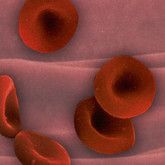Biosimilars
GaBI Journal is the number one journal publishing on biosimilars
The first ever global bibliometric analysis on biosimilars finds that GaBI Journal is the number one journal publishing on biosimilars. The study also shows that research on biosimilars is increasing, but is currently dominated by countries in the West such as the USA [1].
Recommendations published by Canadian breast cancer advocacy group
In April 2019, an advocacy group for patients with breast cancer in Canada – the Canadian Breast Cancer Network (CBCN) - published recommendations related to use of biosimilars in a white paper, entitled ‘Breast Cancer & Biosimilars Recommendations on Use, Implementation and Patient Communications’. These recommendations were informed by insights collected from virtual roundtable discussions with patients and medical oncologists.
Russian approval for non-originator eculizumab
Russian biotechnology company Generium and Swiss-based cell-line producer Selexis announced on 9 April 2019 that the Russian Ministry of Health had approved their eculizumab non-originator biological drug, Elizaria. The drug is a non-originator biological of Soliris (eculizumab), which is made by Alexion Pharmaceuticals.
BiosanaPharma starts phase I trial for omalizumab biosimilar in Australia
Dutch biosimilars developer BiosanaPharma announced on 21 February 2019 that it had received permission from the Australian Bellberry Human Research Ethics Committee (HREC) to start a phase I clinical trial of their first pipeline product, omalizumab.
Canadian organizations collaborate to improve biosimilar adoption in cancer and inflammatory rheumatic and bowel disease
With a number of biosimilars expected to launch in Canada in 2019 and beyond, Canadian organizations are collaborating to improve biosimilar adoption. Canada lags behind the European Union in terms of approval and uptake of biosimilars [1].
Adalimumab biosimilar Idacio launched in Germany
Fresenius Kabi, one of the independently operated business segments of global healthcare group Fresenius, announced on 3 May 2019 that it had launched its adalimumab biosimilar Idacio in Germany.
ASCO/ASH give recommendations for biosimilar ESAs
Recommendations for biosimilar erythropoiesis-stimulating agents (ESAs) in the management of cancer-associated anaemia have been issued by the American Society of Clinical Oncology (ASCO) and the American Society of Hematology (ASH).
Biosimilars education still needed for US and EU clinicians
A review of the literature has concluded that healthcare providers are still cautious when it comes to biosimilars and that clinician-directed education is still needed to increase biosimilar knowledge, facilitate prescribing changes and increase use of biosimilars [1].
EMA approval for pegfilgrastim biosimilar Grasustek
The European Medicines Agency’s (EMA) Committee for Medicinal Products for Human Use (CHMP) announced on 26 April 2019 that it had recommended the granting of a marketing authorization for the pegfilgrastim biosimilar Grasustek.
Patient and provider views on biosimilars to treat breast cancer
A Canadian breast cancer advocacy group collected insights from patients and medical oncologists regarding the use of biosimilar treatments.













